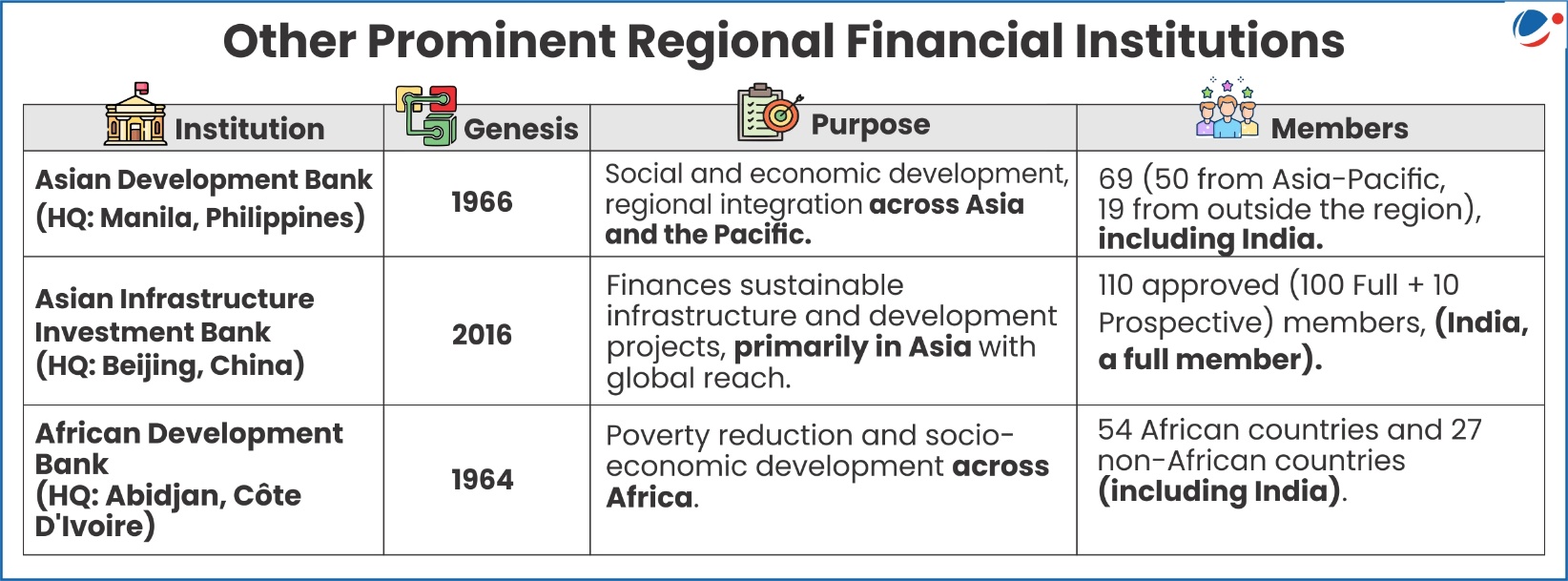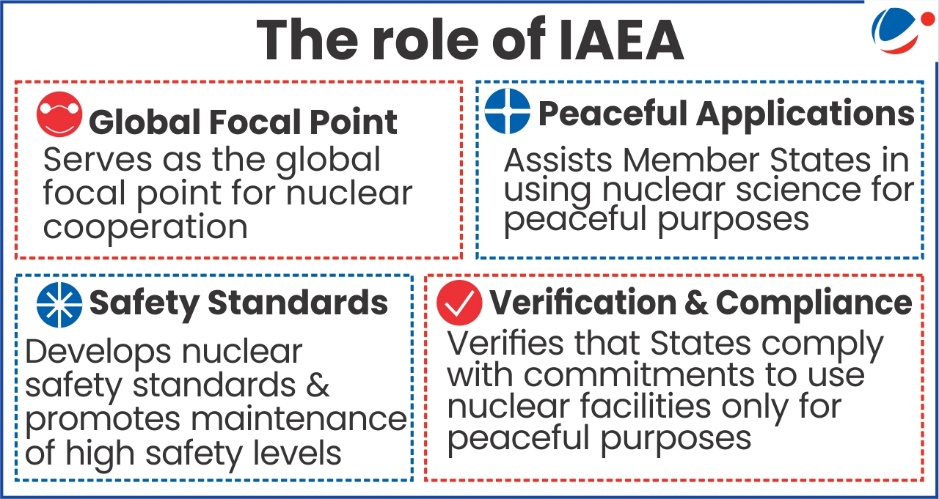Algeria became 9th member of NDB.
About NDB (Hq: Shanghai, China)
- Genesis: 2015 by Brazil, Russia, India, China and South Africa (BRICS) countries.
- Purpose: It is a Multilateral development bank for mobilising resources for infrastructure and sustainable development projects in emerging markets and developing countries (EMDCs).
- Members: Brazil, Russia, India, China, South Africa, Bangladesh, UAE, Egypt, Algeria.
- The membership is open to members of the United Nations, including both borrowing and non-borrowing members (Article 2 of the NDB).
- Uruguay is listed as the prospective member (admitted by NDB’s Board of Governors but will officially become a member after depositing its instrument of accession).
- Capital and Shareholding: Out of the initial authorized capital of $100 Billion, all 5 founding members have an equal share totaling $50 Billion.
- Voting Power: Combined voting power of founding members to be atleast 55%.

Contemporary significance of Regional Financial Institutions
- Sustainable and Inclusive Development: E.g., As of 2024, India has around 20 ongoing projects (worth $4.87 billion) supported by NDB, covering transportation, water conservation, etc.
- Bridging Infrastructure and Investment Gaps: Mobilize long-term financing for infrastructure, catalyse private investment, and close funding gaps.
- Promoting Regional Integration and Stability: Facilitate cross-border cooperation. E.g., India being the founding member of NDB and AIIB has strengthened the South-South cooperation.
Article Sources
1 sourceMinister of Defence urged IAEA oversight of Pakistan's nuclear arsenal.
About International Atomic Energy Agency (IAEA)
- Headquarters: Vienna, Austria
- Genesis: Established in 1957 as an autonomous international organisation within the UN.
- Motto: Atoms for Peace and Development
- Members: 180 (India is a member)
- North Korea: Joined in 1974, withdrew in 1994
- General Conference: All member states meet annually in Vienna.
- Recognition: Awarded the Nobel Peace Prize in 2005 for promoting peaceful nuclear use and global safety
- IAEA and NPT: The IAEA is not a member of the Non-Proliferation of Nuclear Weapons (NPT) but plays a key verification responsibilities under the Treaty.
- Each non-nuclear-weapon State party is required under NPT to conclude a comprehensive safeguards agreement (CSA) with the IAEA to enable the IAEA to verify the fulfilment of their obligation.

About NPT
- The NPT is a binding international treaty whose objective is to prevent the spread of nuclear weapons and weapons technology.
- It came into force in 1970 and was extended indefinitely in 1995.
- So far, 191 countries have joined, including all five recognized nuclear-weapon states (China, France, Russia, the UK, and the US).
- India, Israel, and Pakistan have never joined, while North Korea withdrew in 2003.
Other Treaties to Prevent Nuclear Proliferation
|
Indian officials briefed the monitoring team of the UNSC’s 1267 Sanctions Committee on the activities of The Resistance Front (TRF).
About 1267 sanctions Committee
- It is also called the ISIS and Al-Qaeda Sanctions Committee.
- It was established in 1999, to focus on combating terrorism linked to ISIS, Al-Qaeda, and related groups.
- It comprises all permanent and non-permanent members of the UNSC.
- The committee decides on sanctions and travel bans for terror organisations and ensures the enforcement of these measures under UNSC resolutions 1267 (1999), 1989 (2011), and 2253 (2015).
India has formally assumed the Chairmanship of the Asian Productivity Organization for 2025-26.
About Asian Productivity Organization (APO)
- Genesis: It is an intergovernmental organization established in 1961 by 8 founding members.
- India is one of the founding members.
- Objective: To increase productivity in the Asia-Pacific region through mutual cooperation.
- Members: Comprises 21 economies in the Asia-Pacific region.
- Key roles: Conducts research on emerging needs of members for their follow-up, promotes bilateral and multilateral alliances among members, surveys the economic and development policies and performance of each member, etc.







